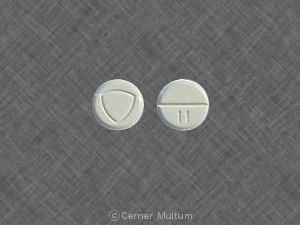Biperiden Dosage
Applies to the following strengths: 2 mg
Usual Adult Dose for:
Additional dosage information:
Usual Adult Dose for Parkinson's Disease
2 mg orally 3 to 4 times a day; the dose may be titrated up to a maximum of 16 mg per 24 hours
Usual Adult Dose for Extrapyramidal Reaction
Neuroleptic-induced: 2 mg orally 1 to 3 times a day
Renal Dose Adjustments
Data not available
Liver Dose Adjustments
Data not available
Precautions
Biperiden is contraindicated in patients with narrow angle glaucoma, bowel obstruction, or megacolon.
Patients with manifest glaucoma, prostatism, epilepsy, or cardiac arrhythmia should be administered biperiden with caution.
Safety and effectiveness have not been established in pediatric patients less than 18 years of age.
Dialysis
Data not available
Other Comments
Biperiden may be administered during or after meals if gastric irritation occurs.
More about biperiden
- Check interactions
- Compare alternatives
- Reviews (1)
- Side effects
- During pregnancy
- Drug class: anticholinergic antiparkinson agents
Patient resources
Other brands
Professional resources
Other brands
Related treatment guides
See also:
Further information
Always consult your healthcare provider to ensure the information displayed on this page applies to your personal circumstances.


